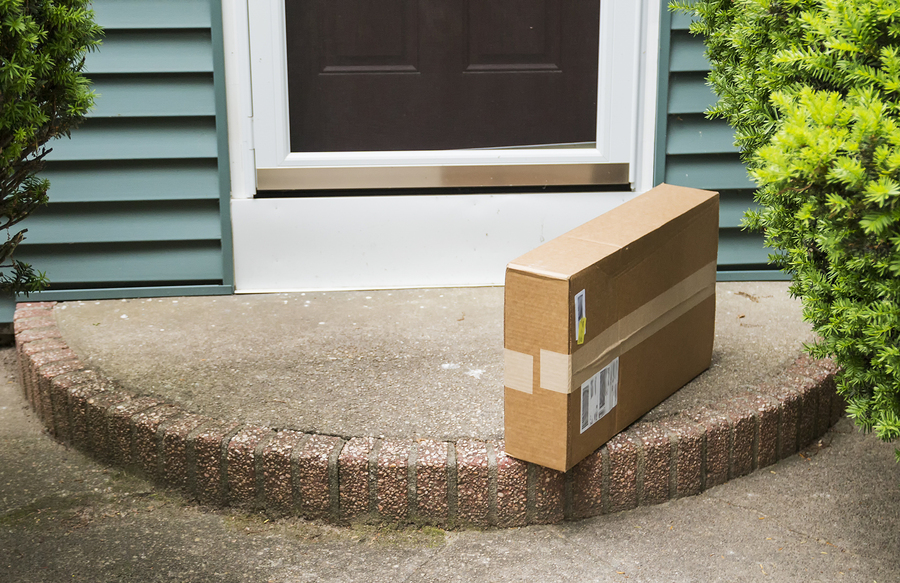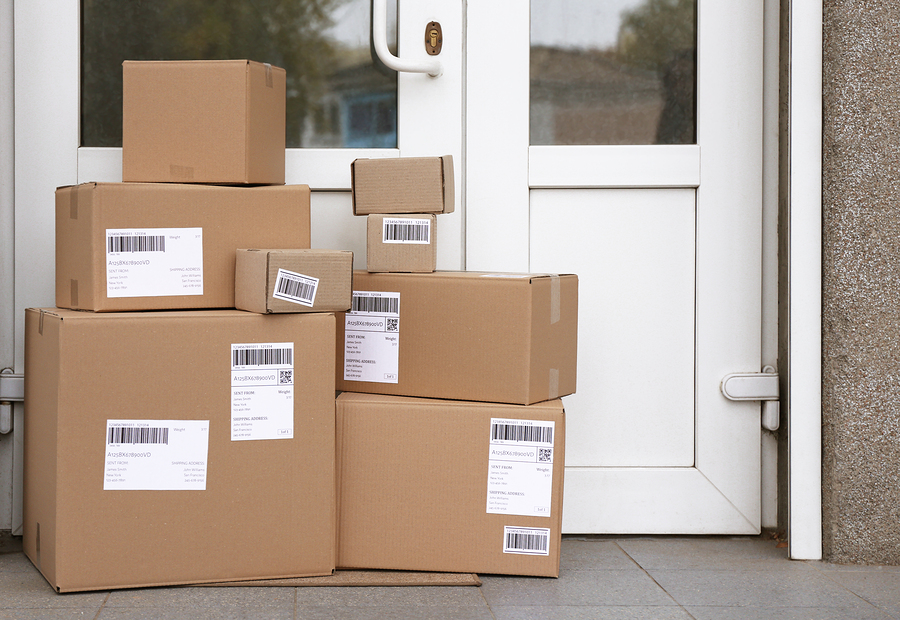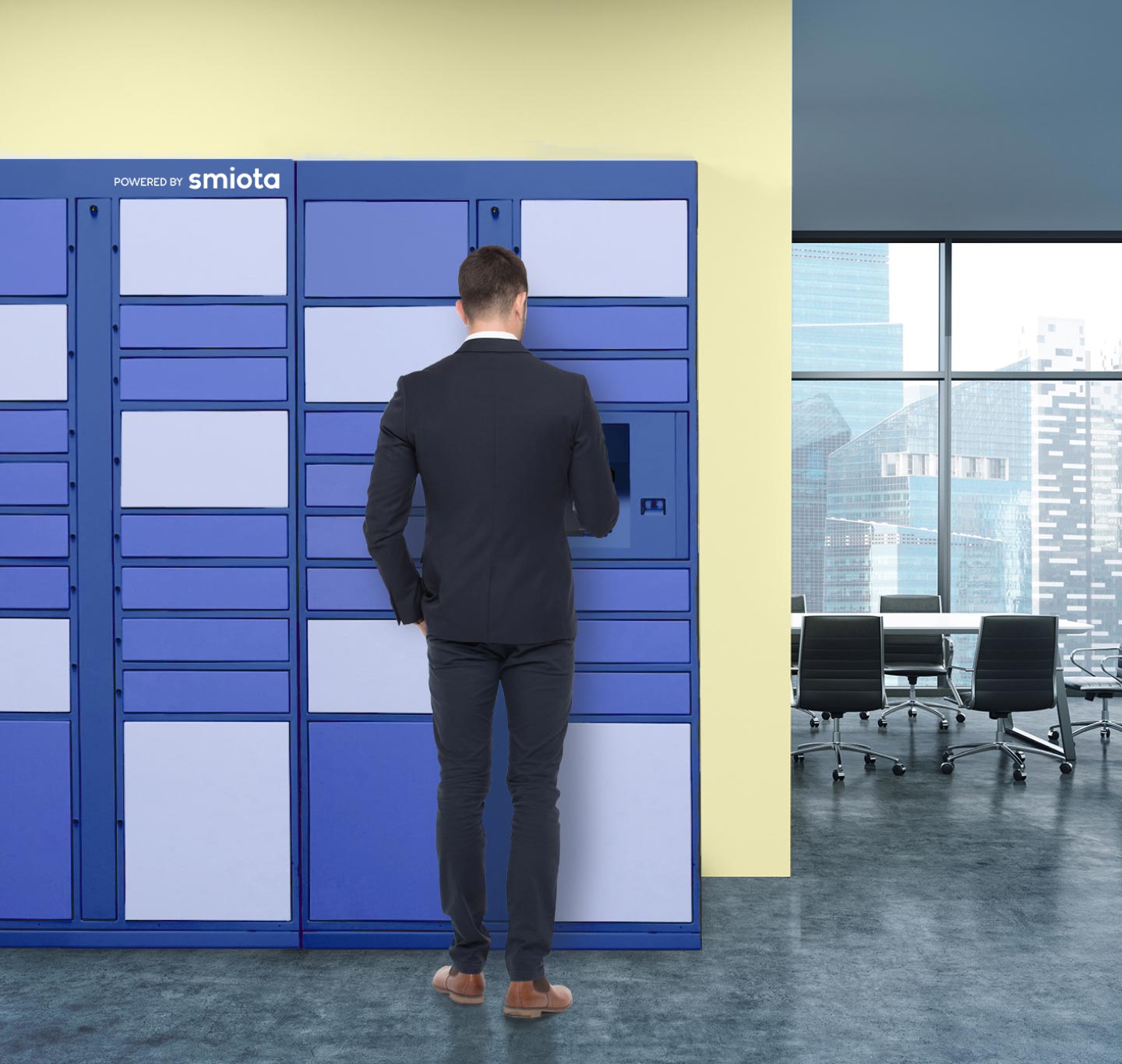As e-commerce skyrockets, package security is on everyone’s mind. Roughly 1 in 4 people have experienced package theft. Manju Kashi has a package theft story of his own, and the resulting headache inspired him to start Smiota, a company dedicated to securing the last yard of delivery.
Manju’s story
About four years ago, Manju was spending about 60% of his time traveling for his work in the tech field. During one of these trips, his bank shipped a box of checks to his front door. His wife was home at the time, but she was completely unaware the checks had been delivered, let alone snatched off the front steps.
Manju and his family were accustomed to entering and exiting the house through their attached garage, rarely using the front door. But the front door has become the designated spot for packages from companies like FedEx and UPS, especially since it’s against federal law for non-USPS carriers to use mailboxes. Unfortunately, the front door is also the perfect place for package thieves to steal a box undetected.
Nothing seemed off until Manju checked his bank account and found an odd check withdrawal. Although he contacted the bank and asked to stop all check payments, the saga of the stolen package persisted. He started getting calls from merchants about checks that weren’t clearing. Turns out, the thief had written out a string of checks to various local stores. Manju says he explained his situation to the vendors, but unfortunately, “they said that based on their policies, they’d have to send me a set of paperwork that I’d have to get notarized, stating that I’m not the one who signed the check.” After eight sets of police affidavits, it still wasn’t over. The credit bureau soon marked those stopped checks as unpaid debt.
“That’s when I rolled up my sleeves,” Manju says. “I wanted to bring technology and the problem together to come up with a solution.”
Protecting last mile delivery
A number of events can prevent a package from reaching the customer safely. For online vendors and shipping companies, Manju reports, “the last mile is the most expensive in the delivery process. The cost can be anywhere from 35% to 50% of the total delivery cost, depending upon what time they’re delivering, how many times they attempt delivery, and so on.” It costs $15 for each failed delivery attempt, all because the courier can’t release the package without the recipient’s signature.
And for packages that don’t require a signature, there are porch pirates to worry about. Some families turn to surveillance cameras, but Manju says these do little to deter thieves. A thief “can
mask himself and go and pick up the parcel from the front door. There is nothing anybody can do.” Police can’t respond in time, and even if the resident does capture a good visual of the pirate, officers are only able to make arrests in 10% of reported cases. It’s not just humans you have to watch out for, either. “Nowadays, they’re training pets to go pick up packages,” Manju adds. (One dog was caught in the act.)
The value of deliverables ranges from small items like office supplies, toiletries, and pet food to expensive purchases like designer clothing, cell phones, and wedding rings. Consumers even trust couriers with their life-saving medications. Manju shared this story about a child who had a package containing his insulin pump stolen. (Fortunately, they caught this pirate!)
Despite these troubling stories and statistics, e-commerce continues to grow. Rideshare giant Uber has attempted a delivery service of its own, and Amazon’s shipping success is overpowering FedEx and UPS. Manju says, “If this is a reality, then there needs to be a package management solution at your front door to bring you peace of mind.” No one can stall the growth of online ordering at this point, but companies like Smiota can ensure safe delivery.
An online transaction isn’t complete until the recipient has physical goods in-hand. And for Smiota, last mile delivery is about fixing the final link in the chain of custody. “That link is broken,” Manju says, “and Smiota’s vision is to repair that link between the courier and the receiver.”
The smart solution
Building the first Smiota product in his garage, Manju’s response to his stolen package incident was “a small smart locker that exchanges physical transactions in a secure manner through the cloud.” Smiota stands for “smart incoming, outgoing transaction appliance,” and the lockers are equipped with sensors that recognize when a package has been deposited or removed. “You can’t just go to your locker, complete the transaction, and close the door,” Manju says. “The locker knows whether you really placed a package or not.”
The lockers work for outgoing packages, too. “Suppose you have an e-commerce package to return,” Manju says. “You’ll be able to deposit the package back and push the notification to the courier, who can come pick it up and complete that transaction. You don’t have to leave home.”
So far, Smiota has designed solutions for multifamily residential buildings, corporate offices, universities, and retail establishments.
Taking the burden off of property managers
Accepting packages at the front desk of an apartment complex is a pain for property managers or residents. Manju says package security is one of the biggest concerns for apartment seekers. If managers are collecting packages during their office hours, residents sometimes have to miss work or arrange separate pick-up times to get their orders. Property managers can’t focus on their primary tasks when they’re busy communicating with renters about packages. And with online sales skyrocketing, the number of packages a property receives and holds for residents will only increase.
Smiota’s lockers allow couriers to bypass the management office. They don’t have to wander around to each apartment door either. Couriers simply drop off packages in the secure lockers and the residents receive immediate notifications. Tenants can then retrieve the packages whenever works for them — lockers are accessible 24/7.
Managing personal and corporate packages at the office
Employees either stay home to accept their personal packages or direct deliveries to their workplace. But staying home doesn’t always prevent theft, and it can be a little awkward to sign for a personal package in front of your boss.
“In order to make sure employees stay at work,” Manju says, “corporations have started taking personal packages along with the corporate packages as a fringe benefit.” This is where Smiota’s lockers save the day. Personal packages stay safe until employees can pick them up at a locker after work.
Corporate mailrooms were originally designed to receive regular post mail and a few packages. Now, with more packages coming in than ever before, Manju says, “[businesses] have to hire external resources to manage all the packages.” In addition to adopting Smiota’s lockers, companies can take advantage of Smiota’s mailroom software to alleviate the burden of package management — all it takes is a smartphone.
Cutting down on campus traffic and reducing carbon footprints
University students are living in the age of frequent mobile ordering and instant delivery expectations. This creates a messy situation for couriers, who are “burning fuel running around in different directions, trying to deliver a lot of things,” Manju says.
Smiota has high-volume lockers designed for this purpose. They can be centrally located in dorms and residence halls for couriers to drop off packages without hassle, and students can pick them up between classes, on their way back from grabbing a late-night snack, or to take a break from an all-night study session.
Storing perishable items for BOPIS and grocery delivery customers
While working with an apartment complex in Baltimore, Smiota came across a request for refrigerated lockers for grocery deliveries. Manju saw it as an expansion opportunity. “We were the first in the country to release refrigerated lockers,” he says. “From there, we started getting a lot of traction and inquiries, and major retailers started contacting us.”
BOPIS (buy online, pick up in store) is gaining popularity among consumers who prefer the convenience of ordering online. Refrigerated lockers make management of BOPIS packages simple and automatic. Customers receive a notification when a package is ready for pick up, go to the storefront, claim the package from the designated locker, and free up the locker for the next customer.
“Refrigerated smart lockers requests are on the rise,” Manju says,” and we’re working with major retailers in the country to not only ambient lockers, but refrigerated and frozen lockers, too.”
—
Smiota has ambitious plans for additional types of lockers and delivery options, so be sure to check back for news on future developments!




